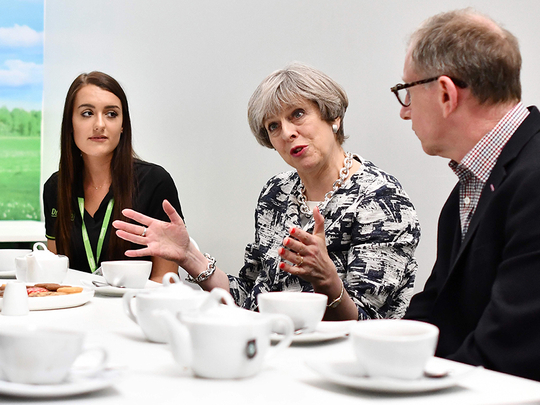
Madrid: British Prime Minister Theresa May is vowing to put a stop to any second referendum for Scottish independence for at least five years, her most senior party official in Scotland says.
And the Conservative’s tough stance on “indyref2” — as the campaign for another vote on separation is known — is adding fuel to the nationalist fires of Scotland’s First Minister, Nicola Sturgeon in the final day of campaigning.
Her Scottish National Party holds 56 of the 59 Westminster seats for Scotland and the latest polls have SNP support at 41 per cent in opinion polls north of the border.
The Secretary of State for Scotland, David Mundell, says that there will be no second referendum vote allowed by Prime Minister Theresa May if she is returned to power.
“If there is a Conservative government I don’t see any circumstances in which we would be having a referendum in the next five years because we are committed to now having a referendum until the Brexit process has played out,” he said yesterday.
But he has also raised the spectre of indyref2 happening if the Labour Party under Jeremy Corbyn is in a position to form a government with the backing of the SNP. He’s convinced Corbyn “will do a deal” with Sturgeon’s party to form a government.
While Corbyn has refused to answer questions on negotiating with other parties to form a government, saying that Labour believes it can form the next government alone, it’s a stance that would change if his party could take office with either a formal coalition agreement or support-in-principle with the SNP.
Opinion polls and daily seat-by-seat projections show no party capable of forming a government on their own following Thursday’s vote.
May’s Conservatives are projected to win 304 seats, down 26 from dissolution. With Labour projected to win 266 — up 37 — neither main party is in a position for form a majority government. With the SNP more ideologically aligned to Labour, how it fares in Thursday’s vote is critical. It’s projected to win 46 seats in Scotland, and if it supports Labour, would give Corbyn a combined power base of 312 seats — 13 seats short of a majority. Even with 12 seats projected for the Liberal Democrats, Corbyn would remain tantalising short of a majority.
The Labour leader said that he agrees in principle with holding indyref2.
“If that is what the Scottish Parliament wants then I think it would be wrong for Westminster to say to Scotland ‘well we gave you devolution but sorry, this it where it stops’,” Corbyn said. “The principle of it, yes. One has to discuss the timing and question of it.”












